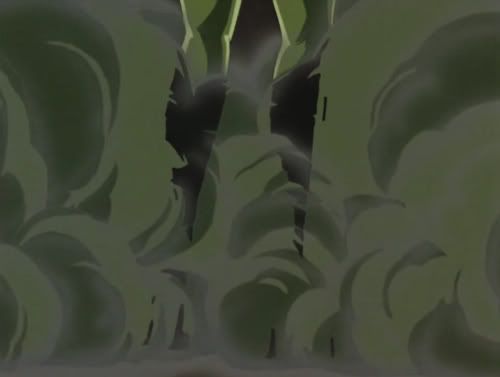Jexhius said:
If taken as a contained story-arc, there's nothing wrong with how Golden Age ends. You can have 'unhappy endings' to a story, we see them all the time.
It isn't an ending, or at least not a good one, and it has nothing to do with if it's happy or unhappy and everything to do with if it offers satisfying closure, which can come along with any kind of emotional tone. This is abortive, it only has the appropriate effect if all Miura was going for in the end was an expression of futility, because that is what it becomes.
His story can still accomplish a lot more than only that, and he can still end it in that way if he finds it necessary. But I don't think he will, and personally I think it seems intuitive why. I won't claim to know what Berserk is 'about', but the man has set up a pretty clever cosmology and a universe where good and evil both absolutely exist, I don't think it makes much sense for him to set that up as a means of offering a sort of quasi-closure. The story is intended to be more than that and as far as I'm concerned, and from a dramatic perspective this is one case where I think the author is right to think so.
At the start characters are introduced, they develop, their backgrounds are fleshed out (using typical flashback storytelling) and they go on to clash and eventually fall. The rise and fall of a great man is one of the most classic story structures in use today. Any typical gangster or crime movie tells the same basic tale.
Having it only be that is to the detriment of Griffith's character. His rise and fall is only a motive for him to make the sacrifice. Griffith's personal tragedy is just the catalyst to lead to the greater tragedy of the story... as I said previously, I think it's about more than that. The particular difference between Guts and Griffith only makes that clearer to me.
Griffith is a sort of person who needs a 'dream' to justify his life. I think the suggestion has been
palpable so far that Miura sees no happy ending for this sort of person. The eclipse is just a fantastic way of making that more poignant than possible through realistic or conventional means, and it is used to great effect. What Griffith is now is almost a kind of allegory for what lies at the end of that sort of path, a kind of dehumanization, but being so literal and absolute it makes that theme more powerful.
It doesn't work if Griffith just becomes a Godhand, the end. That lends credence to Griffith's path in life (which is essentially now that of a glorified, willing pawn), which frankly makes no sense. Griffith's strength is a false strength, he isn't meant to 'win', not because he's the 'bad guy', but because his is the character with the tragic flaw.
There is no conclusion though. There's just been years of wondering around and doing nothing. I know that plot events have happened but to what end, if any?
There aren't really any good excuses for spending twenty years not finishing, or even approaching a conclusion, for your manga.
It's ongoing, yes. It's not like the plot has been in stasis, either. He's been teasing at an ending for a while now and the pieces are finally coming into place for that. Griffith has to get his kingdom, and he has. Fairy Island is probably Guts last stop. A few years ago I couldn't anticipate it, now I can.
There is a good excuse: It's his story, he'll tell it how he wants to, every storyteller makes the medium their own, it's a part of the process. It's too early to say if his approach is a mistake, and I haven't been given enough reason to doubt him yet.















